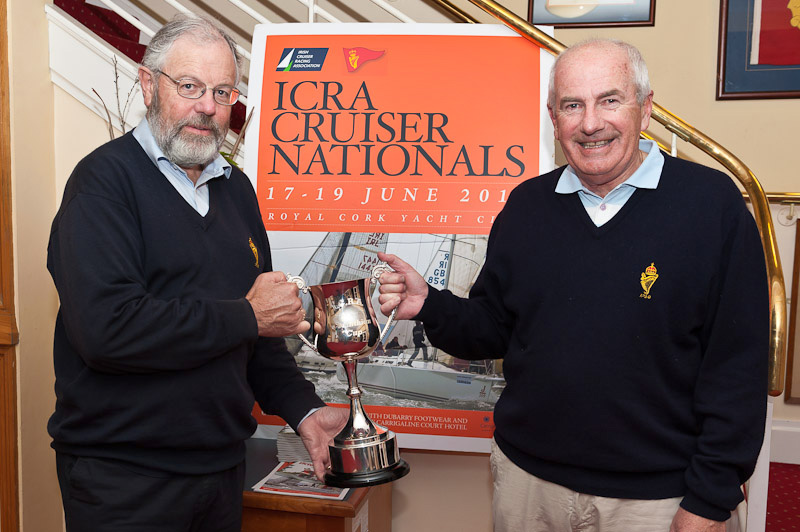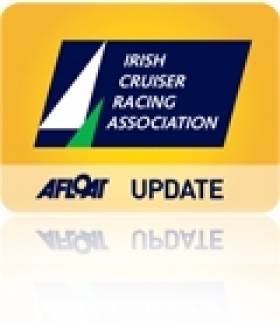Displaying items by tag: Corinthian Cup
ICRA Launch Corinthian Cup
On Friday night last Barry Rose Commodore of the Irish Cruiser Racing Association launched the ICRA Corinthian Cup at the Royal Cork Yacht Club when Club Admiral Paddy McGlade was presented with the new trophy writes Claire Bateman. This cup will be the ultimate trophy for the non spinnaker fleet and carrying the same status of 'National Championship' at the ICRA National Championships. These events, to be sailed side by side, will give due recognition to both events and will add an element of fun and family competition to the whole scene.

Royal Cork Admiral Paddy McGlade receives the new trophy from ICRA Commodore Barry Rose. Photo: Bob Bateman
It was felt by ICRA that the idea of a Corinthian Cup event would reflect the spirit of inclusiveness being displayed by the non spinnaker sailors and means there are now two identical Cups offering equal status to both ECHO and IRC champions.
Admiral Paddy Mc Glade has placed the trophy on display in the Club Bar to encourage all the local non spinnaker (whitesail) fleet to enter the event to be hosted by the Royal Cork Yacht Club from 17th to 19th June.
Douglas Deane will be Race Officer for the non-spinnaker class so an event of the highest calibre is assured.





























































